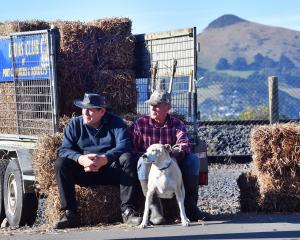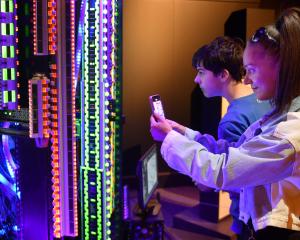
Like many New Zealanders, Dr Paringatai knew little, if anything, about stomach cancer, let alone that the overall rate of the disease among Maori and Pasifika is 62% — three times the overall national prevalence rate.
Then her cousin fell ill.
"The gene was only discovered 25 years ago, and in my own whanau it was probably about 14 years ago that we became aware of stomach cancer within our whanau," Dr Paringatai, an associate professor at the school of Maori, Pacific and Indigenous Studies, said.
"My cousin presented to her doctor with stomach complaints, she had just had a baby and the doctors put it down to reflux ... but it turned out to be stomach cancer, and I think if they had just probed into her family history a bit more, or if she had known a bit more of her family history, they would have realised that stomach cancer ran through her family."
The prognosis for anyone diagnosed with stomach cancer is not promising — only a third of patients live more than five years after diagnosis.
Many Maori have inherited the CDH1 gene mutation which can cause the cancer, a deadly legacy which means someone has an 85% chance of developing the disease.
Dr Paringatai’s fellow stomach cancer awareness advocate, entertainer Stan Walker, has lost 25 members of his whanau to mutations of the CDH1 gene.
Before Dr Paringatai’s cousin died, members of the McLeod whanau — the family whose history of illness helped lead Otago geneticists to discover the CDH1 mutation — promised that they would not let the same thing happen to her children.
That promise led to a Paringatai family reunion, where many of the whanau, including Dr Paringatai, were tested and found to have CDH1.
There is a drastic solution which Dr Paringatai and others have successfully adopted — having their stomach removed.
A radical gastrectomy has a high success rate in staving off cancer but it does come with considerable readjustments to lifestyle and diet — people can still digest food, but do not have a stomach to help do so.
For Maori patients such as Dr Paringatai, there is also a need to reconsider some aspects of cultural practice, given that kai is a central part of te ao Maori.
"You have to learn how to trust your body and discover what you can and can’t stomach, so to speak ... it took a good one or two years before I was comfortable eating out in public.
"Everything we do revolves around kai, so that involved a lot of understanding from people and raising awareness ... you have to lower people’s expectations about feeding you up."
Dr Paringatai had her operation 12 years ago, a year after learning of her genetic status.
She is still going strong, and now has two children.
"If I don’t raise awareness about the gene, about surgical options, about Maori interactions with the health system and how that needs to be better, it is my kid’s future at stake really.
"It is personal, but that is part and parcel of being a Maori researcher."
She is now leading a study on the life-saving benefits of reconnecting with whanau and whakapapa, something she just needs to look in the mirror to find proof of.
"I grew up in Invercargill, away from my iwi and my whanau ... but my knowledge of that is the very reason why I am still alive.
"If I didn’t know who I was, my whakapapa, who I stemmed from, and the connections and relations that my whakapapa informs me, then I wouldn’t know that this gene existed and I wouldn’t have had the opportunity to have this operation and save my life."
■ August is stomach cancer awareness month.












